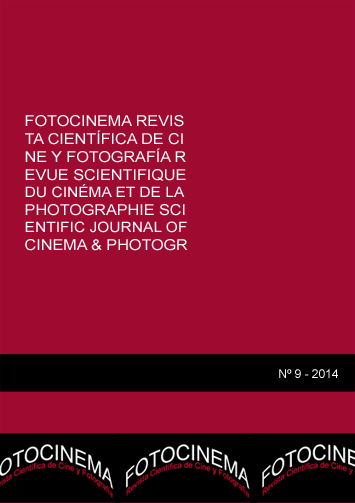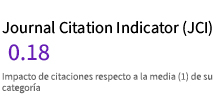La desintegración del sueño americano en el cine de Martin Scorsese
DOI:
https://doi.org/10.24310/Fotocinema.2014.v0i9.5969Abstract
El presente estudio recorre la obra del cineasta Martin Scorsese con el objeto de revelar una de sus principales constantes creativas: la negación del Sueño Americano como una posibilidad al alcance de cualquier estadounidense, independientemente de su condición social o su procedencia. Desde los matones callejeros hasta los triunfadores devorados por el éxito, los protagonistas del cine de Scorsese rompen con este mito y deben conformarse con una realidad que únicamente les conduce al fracaso. Un sueño del que el realizador, nieto de unos inmigrantes llegados a América en busca de una vida mejor, muestra el lado más desconocido y cruel a través de sus películas. En ellas, el ideal de prosperidad se convierte en una meta inalcanzable para la mayoría de los personajes, y en una fuente de codicia y locura para los pocos que logran disfrutarlo. Sin embargo, Scorsese compensa esta visión desesperanzada ofreciendo una vía de redención a sus protagonistas de mayor entereza moral, al tiempo que condena a los más viles y corruptos a una existencia solitaria.
Abstract:
This study reviews Martin Scorsese´s work in order to reveal one of his main creative features: denial of the American Dream as a possibility within any citizens' reach, regardless of their social status or origin. From street thugs to winners absorbed by success, Scorsese´s main characters break with the latter myth and must conform to a reality that only leads them to failure. A dream from which the director, who is the grandson of immigrants that moved to America in search of a better life, shows the most unknown and cruel side through his movies. The ideal of prosperity in his films turns into an unattainable goal for most of the characters, whilst becoming a source of greed and madness for the few that manage to enjoy it. However, Scorsese compensates this hopeless vision by providing a route to redemption to characters with greater moral fortitude, while condemning the most vile and corrupt to a solitary existence.
Palabras clave:
Martin Scorsese; sueño americano; Little Italy; redención; cine.
Keywords:
Martin Scorsese; American Dream; Little Italy; redemption; cinema.Downloads
Metrics
Publication Facts
Reviewer profiles N/A
Author statements
Indexed in
-
—
- Academic society
- N/A
- Publisher
- Universidad de Málaga
Downloads
Published
How to Cite
Issue
Section
License
All contents published in Fotocinema Revista científica de cine y fotografía are protected under the Creative Commons Attribution-NonCommercial-ShareAlike 4.0 International (CC BY-NC-SA 4.0) license. All about this license is available in the following link: <http://creativecommons.org/licenses/by-nc-sa/4.0>
Users can copy, use, redistribute, share and exhibit publicly as long as:
- The original source and authorship of the material are cited (Journal, Publisher and URL of the work).
- It is not used for comercial purposes.
- The existence of the license and its especifications are mentioned.
There are two sets of authors’ rights: moral and property rights. Moral rights are perpetual prerogatives, unrenounceable, not-transferable, unalienable, imprescriptible and inembargable. According to authors’ rights legislation, Fotocinema. Revista científica de cine y fotografía recognizes and respects authors moral rights, as well as the ownership of property rights, which will be transferred to University of Malaga in open access. The property rights are referred to the benefits that are gained by the use or the dissemination of works. Fotocinema. Revista científica de cine y fotografía is published in an open access form and it is exclusively licenced by any means for doing or authorising distribution, dissemination, reproduction, , adaptation, translation or arrangement of works.
Authors are responsable for obtaining the necessary permission to use copyrighted images.














13.png)



